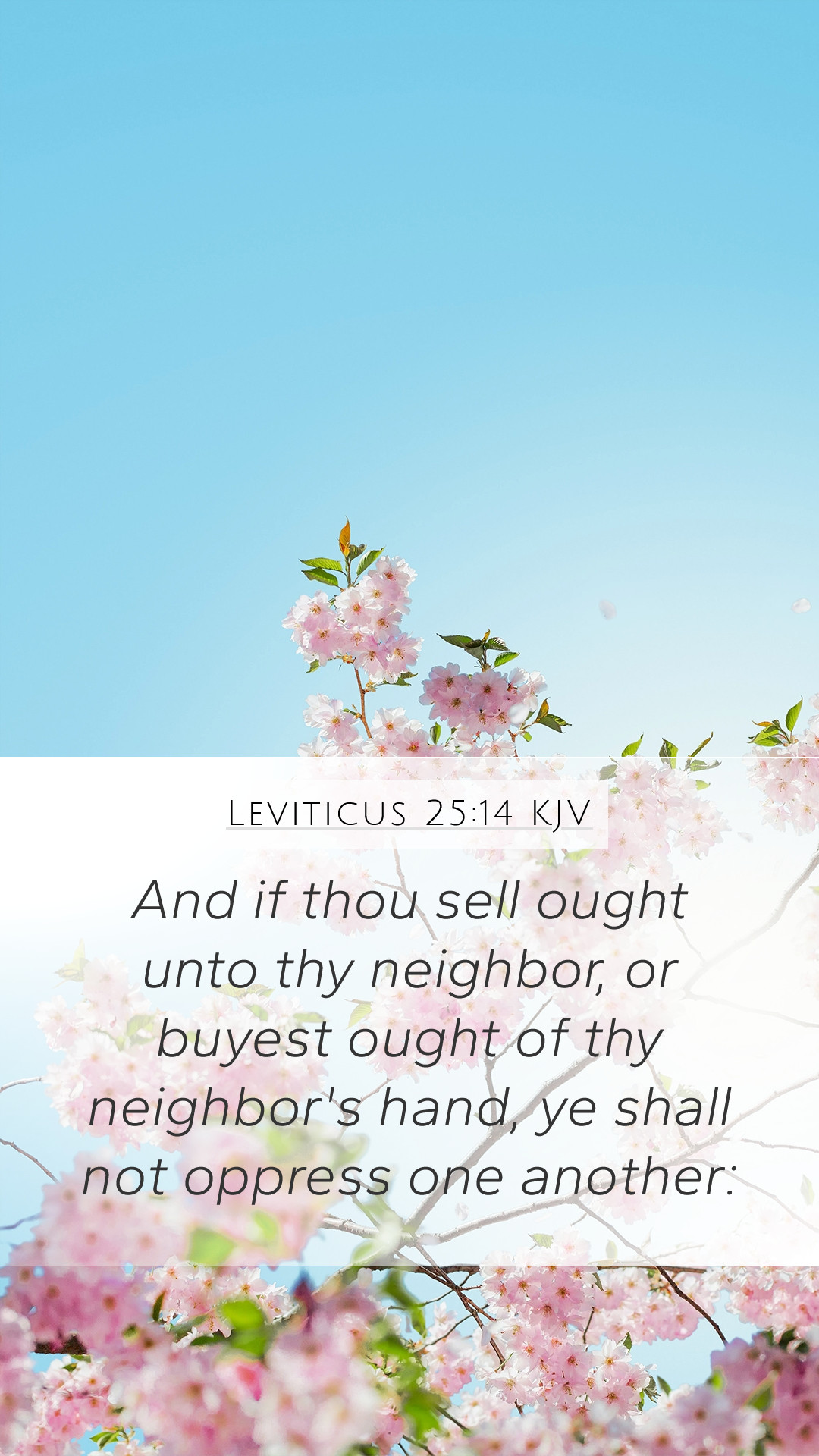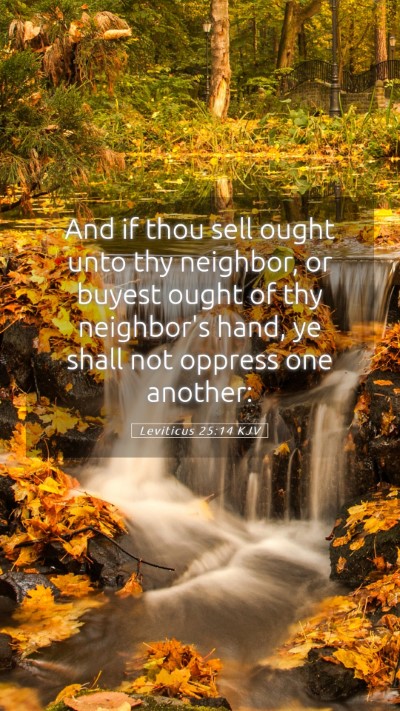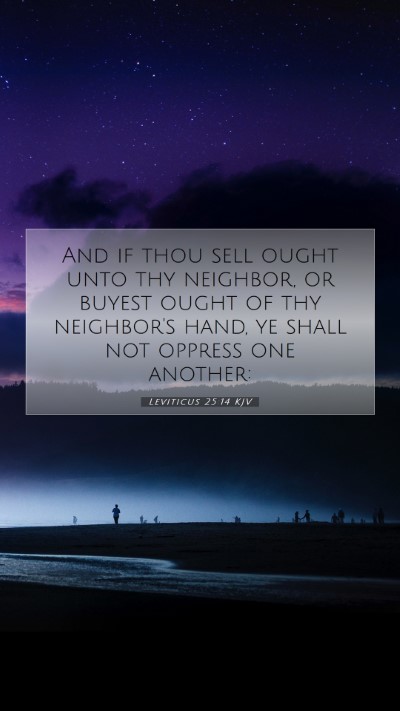Bible Verse Commentary on Leviticus 25:14
Verse Reference: Leviticus 25:14
This verse is part of the instructions given by God to the Israelites regarding the laws governing their behavior, particularly related to their dealings with one another in the context of economic and social justice. In Leviticus 25:14, God commands the Israelites about the principles that should govern their transactions, emphasizing fairness and equity in commerce.
Meaning and Interpretation of Leviticus 25:14
The verse states: "And if you sell anything to your neighbor, or buy from your neighbor’s hand, you shall not oppress one another." This commandment reflects the underlying biblical principle of loving one’s neighbor.
- Matthew Henry's Commentary: Matthew Henry emphasizes that this verse calls for honesty and integrity in transactions, highlighting the moral responsibility to treat each other justly. He notes that oppression in any form is contrary to God's order.
- Albert Barnes' Commentary: Barnes elaborates on the economic implications of the command, stressing that the Israelites should avoid practices that would lead to exploitation. Instead, they should engage in dealings that promote mutual benefit and communal harmony.
- Adam Clarke's Commentary: Clarke points out that this commandment is rooted in the principles of the Jubilee year, where land and possessions were regularly restored to their original owners. This context reinforces the importance of treating one another with respect and fairness, particularly regarding ownership and property rights.
Symbolism and Practical Application
The command also symbolizes God’s concern for social justice and the protection of individual rights, urging the Israelites to maintain a community of trust and respect. This principle is applicable even today, stressing the importance of ethical conduct in business and relationships.
Moreover, in examining the significance of Bible verses such as Leviticus 25:14, we gain Bible study insights that inform our understanding of ethical behavior. Applying Bible verses to daily life, this teaching encourages believers to act justly and support one another in all transactions, be it in business, community engagements, or interpersonal relationships.
Bible Cross References
- Exodus 22:25 - "If you lend money to any of my people who are poor among you, you shall not be like a money lender to him; you shall not charge him interest."
- Leviticus 19:13 - "You shall not cheat your neighbor, nor rob him. The wages of him who is hired shall not remain with you all night until morning."
- Deuteronomy 24:14-15 - "You shall not oppress a hired servant who is poor and needy, whether one of your brethren or of the aliens who are in your land within your gates."
- Matthew 22:39 - "You shall love your neighbor as yourself."
- James 5:4 - "Indeed, the wages of the laborers who mowed your fields, which you kept back by fraud, cry out; and the cries of the reapers have reached the ears of the Lord of Sabaoth."
Conclusion
In summary, Leviticus 25:14 serves as a profound reminder of the call to integrity in our dealings and the underlying scriptural principle of love and justice within the community. By studying this verse alongside other relevant scriptures, believers can acquire deeper understanding and practical application of biblical principles in everyday life, fostering an environment of trust and respect.
For those engaged in Bible study groups or online Bible study, reflecting on this verse encourages discussions around ethical practices and the importance of community welfare.
As we explore the meaning of Bible verses like Leviticus 25:14, may we be guided by a spirit of integrity, enriching our biblical exegesis and enhancing our understanding of God's commandments.


